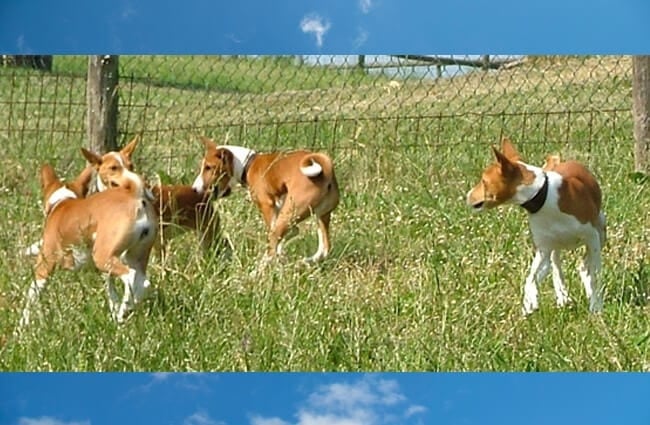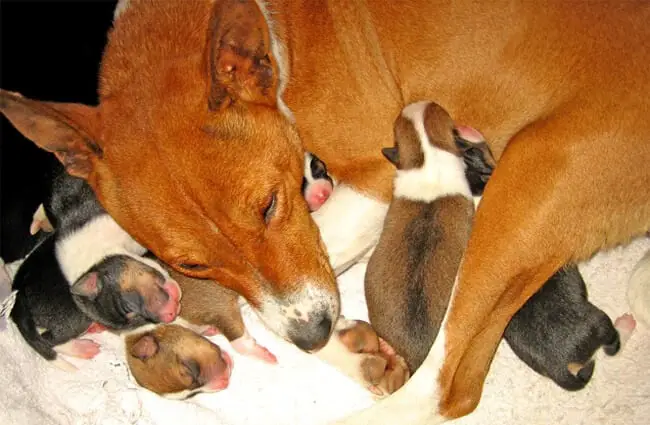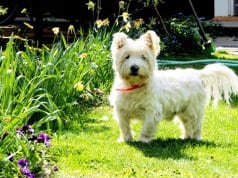The Enigmatic Basenji: A Deep Dive into Africa’s Barkless Wonder
The Basenji, often called the “barkless dog,” is a fascinating breed steeped in ancient history and possessing a unique personality. Originating from Central Africa, this small to medium sized hound offers a compelling blend of independence, intelligence, and playful energy. Understanding the Basenji’s specific needs and characteristics is crucial for any prospective owner hoping to welcome this extraordinary canine into their life.

A History Rooted in Ancient Egypt
The Basenji’s lineage can be traced back thousands of years to ancient Egypt. Depictions of dogs remarkably similar to the Basenji appear in ancient Egyptian artwork, and they were prized companions of pharaohs. These dogs were valued for their hunting skills and were often given as gifts to foreign dignitaries. Over the centuries, the breed remained largely isolated in the Congo basin, preserving its distinctive characteristics. European explorers rediscovered the breed in the late nineteenth century. Although attempts were made to establish the breed in Europe, it nearly disappeared after the Second World War when breeding programs were disrupted. Dedicated breeders saved the Basenji from extinction, and today it is a relatively rare but increasingly popular breed worldwide.
Physical Characteristics: A Sculpted Athlete
The Basenji is a compact, well proportioned dog, typically standing between sixteen and seventeen inches tall at the shoulder and weighing between twenty two and twenty four pounds. Their physique is muscular and athletic, reflecting their hunting heritage. A defining feature is their wrinkled forehead, which deepens when they are curious or concentrating. The Basenji boasts a short, fine coat that comes in various colors, including red, black, tricolor (black, tan, and white), and brindle. The breed also exhibits distinctive white markings on the feet, chest, and tail tip. The curled tail, carried over the back, is another hallmark of the Basenji.

The “Barkless” Myth and Unique Vocalizations
While famously known as the “barkless dog,” the Basenji does not actually lack a voice. They simply do not bark in the traditional sense. Instead, they produce a unique yodeling or chortling sound, often described as a vocalization somewhere between a howl and a chuckle. This unusual vocalization, combined with their expressive body language, makes communication with a Basenji a truly engaging experience. The vocalization is thought to be an adaptation stemming from their need to communicate over long distances in the dense African forests. The Basenji also uses a wide range of subtle body language cues, making careful observation essential for understanding their mood and intentions.
Temperament and Personality: Independent Thinkers
Basenjis are intelligent, independent, and often described as cat-like in their behavior. They are fastidious and tend to groom themselves like felines. They are playful and energetic, requiring regular exercise and mental stimulation. Their independence can also translate into stubbornness, making training a challenge. Early socialization and consistent, positive reinforcement training are crucial for shaping a well behaved Basenji. They are not known for being overly affectionate or demonstrative, but they form strong bonds with their families and enjoy being involved in household activities. Due to their hunting instincts, Basenjis have a strong prey drive and may chase small animals. Secure fencing is essential to prevent them from escaping and pursuing their quarry.

Caring for Your Basenji: Specific Needs
Basenjis are relatively low maintenance in terms of grooming, but they do require regular exercise and mental stimulation. Daily walks, playtime, and puzzle toys are essential for keeping them happy and preventing boredom. Their short coat requires minimal brushing, but they do shed moderately throughout the year. Basenjis are sensitive to cold weather and may require a coat or sweater during the winter months. Diet is also important. A high quality dog food appropriate for their age and activity level is essential. Because they have a lean physique, it is important to avoid overfeeding.
Health Considerations: Potential Issues
Basenjis are generally a healthy breed, but they are predisposed to certain genetic health conditions. These include Progressive Retinal Atrophy, a degenerative eye disease, Fanconi syndrome, a kidney disorder, and hip dysplasia. Responsible breeders screen their breeding stock for these conditions to minimize the risk of passing them on to their puppies. Regular veterinary checkups are essential for early detection and treatment of any health problems. Basenjis are also prone to allergies, so it is important to monitor them for signs of skin irritation or digestive upset.

Basenjis and Their Environment: Best Fit
Basenjis thrive in environments where they receive plenty of exercise, mental stimulation, and human interaction. They are adaptable dogs that can do well in apartments or houses, provided they receive adequate exercise. However, their strong hunting instincts and tendency to roam make secure fencing essential. They are not ideally suited for homes with very young children, as they may not tolerate rough handling. A home with older, respectful children is a better fit. Basenjis are generally good with other dogs, but early socialization is important to ensure they get along well with everyone. They can be wary of strangers, so early socialization with a variety of people is also crucial.
Advanced Insights: Understanding Basenji Behavior
Beyond the basics, understanding the nuances of Basenji behavior requires delving into their instinctive drives. Their strong prey drive isn’t simply about chasing; it is a remnant of their role as hunters, requiring them to assess and pursue potential prey. This translates into a need for controlled off leash exercise in secure areas. Their independence is not stubbornness, but a self reliance honed over centuries of working independently. Training should focus on positive reinforcement and building a partnership based on trust and respect. Ignoring their need for mental stimulation can lead to destructive behaviors, so providing puzzle toys and engaging activities is crucial. Basenjis are also known for their “Basenji bonkers,” a playful, frenetic burst of energy where they run around in circles and generally act silly. This is a normal behavior and should be encouraged as a healthy outlet for their energy.

The Basenji is a truly unique and captivating breed. While not the right fit for every owner, those who are willing to embrace their independent spirit, provide ample exercise and mental stimulation, and understand their distinctive quirks will be rewarded with a loyal, intelligent, and endlessly fascinating companion. Their ancient lineage and unusual characteristics make them a treasure to behold, a living link to a rich and storied past.




![Red Angus Closeup of a beautiful Red Angus cowPhoto by: U.S. Department of Agriculture [pubic domain]https://creativecommons.org/licenses/by/2.0/](https://animals.net/wp-content/uploads/2020/03/Red-Angus-4-100x75.jpg)

